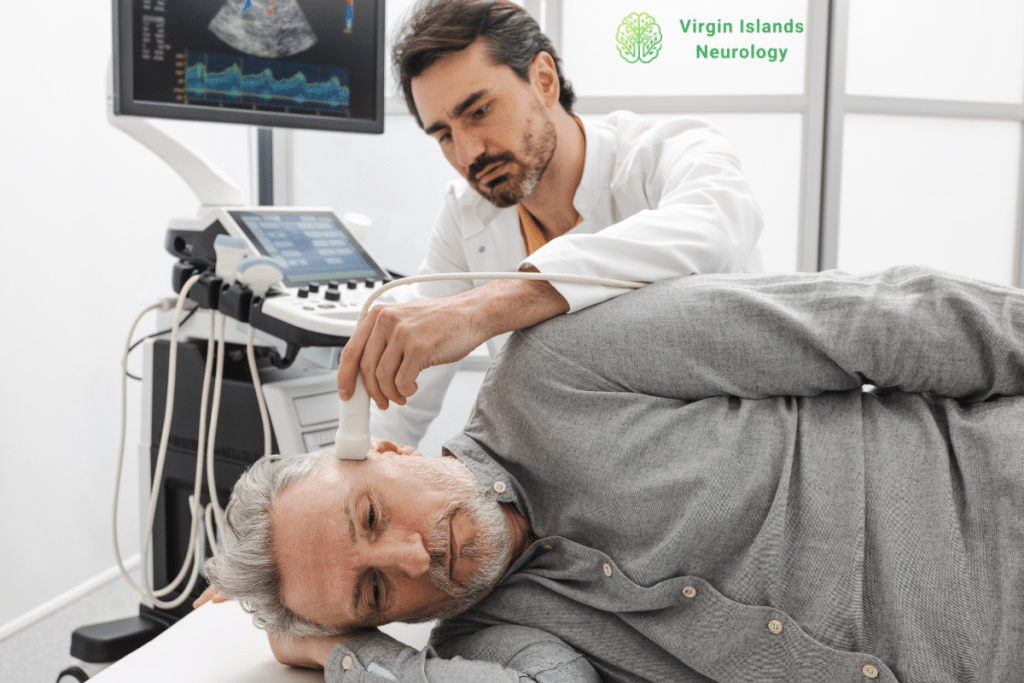At Virgin Islands Neurology, we use advanced ultrasound technology to help assess and reduce your risk of stroke and mini-stroke. Our noninvasive tests provide fast, accurate insights into brain blood flow.
We offer both carotid and transcranial Doppler studies right here in the U.S. Virgin Islands. These diagnostic tools support early detection and better treatment planning. Contact us today to schedule a consultation!

Doppler studies use ultrasound waves to assess structures and processes inside the body. One of the most familiar uses of ultrasound is in obstetrics where the technique is used to evaluate the developing fetus.
Doppler ultrasound studies are also used in other areas of medicine, including neurology, where they can be useful in assessing blood flow to and in the brain. Carotid Doppler studies use ultrasound energy to look for blockages or narrowing in the two carotid arteries that supply the brain with oxygen-rich blood.
The carotid arteries are located on either side of the neck. A transcranial Doppler study evaluates the flow of blood inside the skull.
Carotid and transcranial Doppler studies usually are performed to assess a person’s risk of having a stroke of transient ischemic attack (TIA or “mini-stroke”), emboli or other issues related to blood flow in the brain, or to manage treatment in patients at risk for these issues.
When assessing stroke risk, they’re often ordered in patients who have:
Both tests are performed on an outpatient basis. Carotid ultrasounds are completely noninvasive.
Transcranial ultrasound tests may include other tests like a “bubble study” that tracks tiny, microscopic bubbles injected into the bloodstream to determine if these bubbles are able to make it to the brain or if they’re trapped prior to reaching the brain. The bubble study can be useful in determining if clots that form elsewhere in the body could potentially travel to the brain, causing stroke.
Both tests use a handheld device called a transducer that’s placed against the skin and moved over the evaluation site. The transducer sends ultrasound waves through the skin, “capturing” the waves as they bounce back and then sending data to the ultrasound machine, which creates detailed images based on that data.
Protect your health with expert care from Virgin Islands Neurology in the U.S. Virgin Islands. Our team is here to help you take proactive steps against stroke and other vascular conditions.
Contact us today to book your carotid or transcranial Doppler study. Early detection can make all the difference—let us support your journey to better brain health.

Schedule an Appointment
Address
Hours